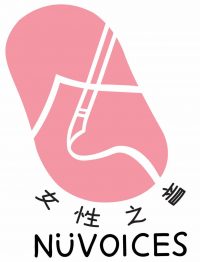Note: This essay is by a contributor based in China who has been anonymised due to safety concerns. The piece has been translated from Mandarin into English (see original below)
I am a Manchu girl from a small town in Heilongjiang Province, currently at university in Tibet. My identity is woven together from the traditions of a border town in the far northeast and the rapid development of the entire country. But there is more to my story than the official narrative of “56 ethnicities, one loving family.”
When I was in elementary school, on a spring trip to Yangzhou, a drunk man yelled out at me: “Go back to Dongbei, Tatar!” Those words stung hard, spurring me to a lifelong search for justice and a sense of belonging. When I grew up, I saw for myself how the political system controls the narrative under the guise of education. In my sophomore year at university, I was forced to take a course on the Five Marxist Viewpoints every Friday afternoon and Saturday, while my Han classmates were free to leave campus and go wherever they pleased. That’s when I started documenting the unjust treatment of minority students.
The price of bravery? I was put under house arrest for the entire week of the National Day holiday. In this country that boasts of bringing all Chinese people together, I can’t help but ask: Where do I really belong? Where can I find respect and equality?
I often ask myself: What does it mean to be Chinese today? To me, it means forging through the coercive assimilation embedded in the rhetoric and reality of unity; it means acknowledging the pain of being humiliated when I was a child; and it means turning that pain into a call for true equality. I believe that being Chinese is about much more than just Han blood or political identity. It is multi-faceted, and it ought to include diversity and mutual respect. I cherish my Manchu identity, and I long for the day when every nationality, every person, every voice in China is listened to with care and respect.
I am perplexed, but made steadfast, by the contrast between the official rhetoric around our “big family” and the reality of forced ideological unity. My experience has taught me that identity is not immutable. It is constantly evolving under the weight of history, politics, and personal struggle. “Chinese identity” should embrace everyone, not be used as a tool for repression, criticism, or conformity. It should be a platform on which every citizen, no matter their ethnicity or gender, can honestly discuss the injustices they face.
I believe that each person’s story, especially those from the margins, add a vital, beautiful movement to the symphony of our country. Every Chinese person has the right to decide their own future. We should all have the freedom to find ourselves and express who we truly are. By telling our stories — these diverse stories of injustice, so often overlooked — we can take back this identity. When I look at how far I have come, I know this journey is far from over. Whether I use my voice in writing, reporting, or in other artistic forms, I am determined to continue calling for a China that is done with oppression, where everyone is free to follow their own path.
This is my story — a story of persistence and hope, a story of the path towards a more inclusive China.
Chinese version:
我的中国身份:在压迫与迷茫中寻找自我
我是一个出生在黑龙江小镇的满族女孩,现在在西藏上大学。我的身份由东北边陲小镇的传统和现代中国的快速发展共同编织而成。然而,在“56民族一家亲”的官方叙述背后,我的真实经历讲述着一个更为复杂的故事。小学时的一次扬州春游。一个醉汉冷嘲热讽地叫道:“鞑子,滚回东北去!”那刺耳的话语深深刺痛了我,也为我开启了一段关于归属感和公平性的终身探索。长大后,我亲眼见证了政治机制如何伪装成教育来控制叙事。在大二时期,每个星期五下午和星期六,我们被迫参加马克思主义五观课,而汉族同学则可以外出逛街。我从那时候开始记录少数民族学生所受的不公平对待,可勇敢的代价就是我在国庆节期间被非法软禁一周。
在这个自诩团结所有中国人的国家里,我不禁想:我究竟属于哪里?我又该如何找到应有的尊严和平等?
我常常问自己:今天做一个中国人意味着什么?对我来说,这意味着在一个官方统一的言论与现实中的强制同化的环境中艰难前行;意味着承认童年时被侮辱的难过;同时,也意味着将这些伤痛转化为对真正平等的呼唤。在我看来,中国身份绝不仅仅是汉族血统或政治认同,它是一种多面的身份,应当包容多样性并相互尊重。我珍视我的满族身份,我也渴望看到中国的每个民族、每个人的声音都能被尊重,被倾听。官方所宣扬的“大家庭”理想与现实中强制的思想统一之间的落差,让我既迷茫又坚定。我的经历让我明白,身份不是一成不变的,它在历史、政治和个人奋斗的重压下不断演变。“中国身份”应该让大家包容和相互尊重,而不应成为压制批评或强制统一的工具。它应成为一个平台,让每个公民,无论其民族或性别,都能就他们所面临的不公正进行坦诚对话。我坚信,每个人的故事,尤其是来自边缘群体的故事,都为国家身份认同的交响乐增添一段必要而优美的乐章。每个中国人都有权选择未来,都应拥有追求自我和表达真实的自由。我们可以通过讲述自己的故事——那些既多样性,又经常被忽视的不公来重新夺回这份身份。今天,当我回望自己走过的路,我深知,走向更加公正的中国身份认同的旅程仍在继续。我决心继续用我的声音,无论是通过文章、报道还是其他艺术手段,去挑战不公,呼吁一个让每个人都能自由发展、摆脱压迫的中国。
这就是我的故事——一段在不公中坚持呼唤人性的旅程,同时也是对一个更包容的中国发出的真挚呼唤。
About the translator
Anne Henochowicz, a NüVoices board member, translates and teaches Chinese. She is the former Translations Editor at China Digital Times and the LA Review of Books China Channel. She lives in Washington, DC.

